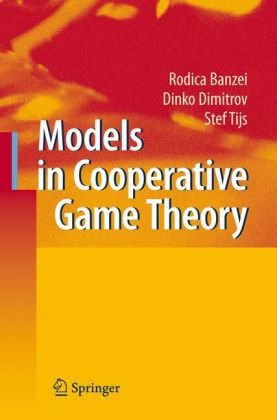

Most ebook files are in PDF format, so you can easily read them using various software such as Foxit Reader or directly on the Google Chrome browser.
Some ebook files are released by publishers in other formats such as .awz, .mobi, .epub, .fb2, etc. You may need to install specific software to read these formats on mobile/PC, such as Calibre.
Please read the tutorial at this link: https://ebookbell.com/faq
We offer FREE conversion to the popular formats you request; however, this may take some time. Therefore, right after payment, please email us, and we will try to provide the service as quickly as possible.
For some exceptional file formats or broken links (if any), please refrain from opening any disputes. Instead, email us first, and we will try to assist within a maximum of 6 hours.
EbookBell Team

0.0
0 reviewsCooperative game theory is a booming research area with many new developments in the last few years. So, our main purpose when prep- ing the second edition was to incorporate as much of these new dev- opments as possible without changing the structure of the book. First, this o?ered us the opportunity to enhance and expand the treatment of traditional cooperative games, called here crisp games, and, especially, that of multi-choice games, in the idea to make the three parts of the monograph more balanced. Second, we have used the opportunity of a secondeditiontoupdateandenlargethelistofreferencesregardingthe threemodels of cooperative games. Finally, we have bene?ted fromthis opportunity by removing typos and a few less important results from the ?rst edition of the book, and by slightly polishing the English style and the punctuation, for the sake of consistency along the monograph. The main changes are: (1) Chapter 3 contains an additional section, Section 3. 3, on the - erage lexicographic value, which is a recent one-point solution concept de?ned on the class of balanced crisp games. (2) Chapter 4 is new. It o?ers a brief overview on solution c- cepts for crisp games from the point of view of egalitarian criteria, and presents in Section 4. 2 a recent set-valued solution concept based on egalitarian considerations, namely the equal split-o? set. (3)Chapter5isbasicallyanenlargedversionofChapter4ofthe?rst edition because Section 5. 4 dealing with the relation between convex games and clan games with crisp coalitions is new.